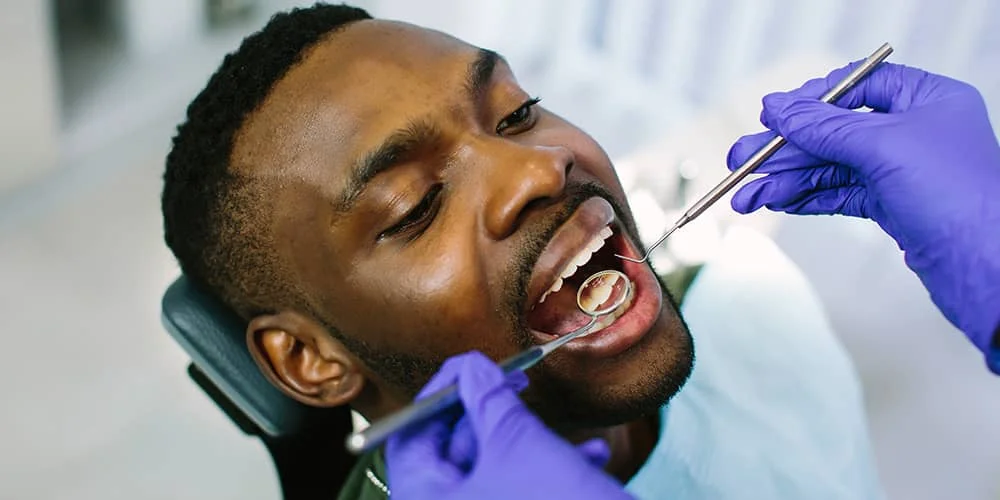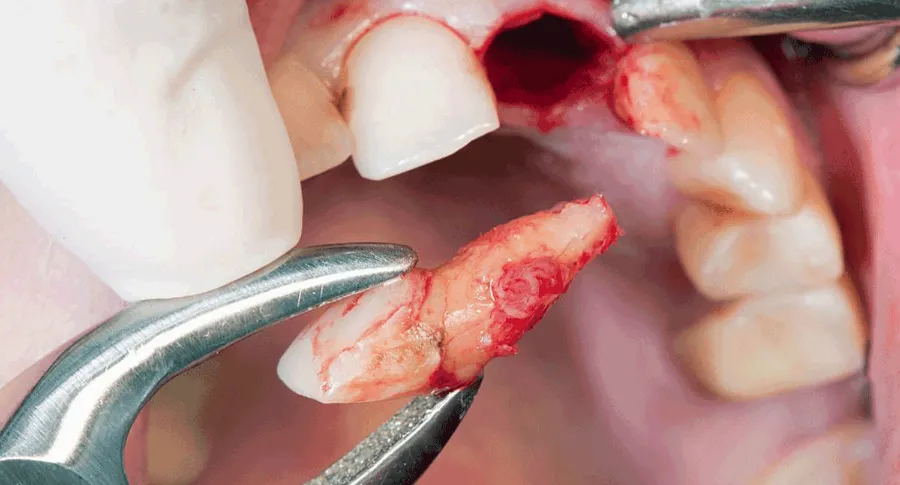Tooth Extraction Near Me

Tooth Extraction
Outline
- Wisdom Tooth Extraction Near Me Introduction
- The importance of dental health
- Overview of wisdom tooth extraction
- Why you might need wisdom tooth extraction
- Understanding Wisdom Teeth
- What are wisdom teeth?
- When do wisdom teeth typically appear?
- Common problems associated with wisdom teeth
- Signs You Need Wisdom Tooth Extraction
- Pain and discomfort
- Swollen gums
- Jaw stiffness
- Bad breath and taste in the mouth
- Impacted wisdom teeth
- Finding a Dental Surgeon Near You
- Importance of choosing the right dental surgeon
- Tips for finding a qualified dentist
- Using online resources to find local dentists
- What to Expect During the Consultation
- Initial dental examination
- X-rays and imaging
- Discussing the procedure and aftercare
- The Wisdom Tooth Extraction Procedure
- Preparation for the surgery
- Types of anesthesia used
- Step-by-step breakdown of the procedure
- Post-Extraction Care
- Immediate aftercare tips
- Pain management strategies
- Foods to avoid and recommended diet
- Importance of follow-up appointments
- Potential Complications and How to Handle Them
- Common complications
- When to seek medical attention
- Preventative measures
- Recovery Timeline
- Day-by-day recovery process
- Signs of normal healing vs. complications
- Tips for a smooth recovery
- Cost of Wisdom Tooth Extraction
- Factors affecting the cost
- Insurance coverage
- Payment plans and financial assistance options
- FAQs About Wisdom Tooth Extraction
- How painful is the extraction?
- How long does the procedure take?
- Can I drive myself home after the surgery?
- How long before I can eat normally again?
- What are the risks of not removing impacted wisdom teeth?
- Conclusion
- Recap of the importance of wisdom tooth extraction
- Encouragement to seek professional advice if experiencing symptoms
- FAQs
Introduction
Taking care of our dental health is vital, not just for a beautiful smile but for our overall well-being. One common dental procedure many people face is wisdom tooth extraction. If you’re experiencing discomfort or other symptoms, you might be wondering, “Where can I find wisdom tooth extraction near me?” Let’s dive into everything you need to know about this procedure, from understanding why you might need it to finding the right dental surgeon nearby.
Understanding Wisdom Teeth
What Are Wisdom Teeth?
Wisdom teeth, also known as third molars, are the final set of molars that usually emerge in our late teenage years or early twenties. These teeth were useful for our ancestors who had larger jaws and needed extra molars to chew tough foods. However, in today’s world, these teeth are often more trouble than they’re worth.
When Do Wisdom Teeth Typically Appear?
Most people get their wisdom teeth between the ages of 17 and 25. However, it’s not uncommon for some to have them appear earlier or later. Sometimes, these teeth can stay hidden under the gums, never causing any issues. But often, they can lead to several dental problems.
Common Problems Associated with Wisdom Teeth
Wisdom teeth can cause various issues, especially if there’s not enough space in your mouth for them to come in properly. They can become impacted, grow at odd angles, or only partially emerge. This can lead to pain, infection, and other dental problems.
Signs You Need Wisdom Tooth Extraction
Pain and Discomfort
One of the most obvious signs that you might need your wisdom teeth removed is persistent pain and discomfort at the back of your mouth. This pain can be constant or come and go, but if it lasts more than a few days, it’s time to see a dentist.
Swollen Gums
Swelling around your gums, especially in the area where your wisdom teeth are trying to emerge, is a common sign that something is wrong. This swelling can lead to tender and bleeding gums, making it difficult to eat or even talk comfortably.
Jaw Stiffness
If you notice that your jaw feels stiff or sore, particularly in the mornings, it might be due to your wisdom teeth. This stiffness can affect your ability to open and close your mouth properly.
Bad Breath and Taste in the Mouth
Persistent bad breath or an unpleasant taste in your mouth can be a sign of infection, often related to impacted or partially erupted wisdom teeth. This is usually caused by food and bacteria getting trapped in the gum tissue around the teeth.
Impacted Wisdom Teeth
Impacted wisdom teeth are those that don’t have enough space to emerge or develop normally. They can be fully impacted (stuck beneath the gums) or partially impacted (partially emerged). Both situations can cause significant pain and lead to infections.
Finding a Dental Surgeon Near You

Importance of Choosing the Right Dental Surgeon
Choosing the right dental surgeon is crucial for a successful and less stressful wisdom tooth extraction experience. A skilled surgeon will ensure the procedure is as comfortable as possible and provide excellent post-operative care.
Tips for Finding a Qualified Dentist
Begin by seeking suggestions from friends, family members, or your usual dentist. Look for dentists who specialize in oral surgery or have extensive experience with wisdom tooth extractions. Check their credentials, read online reviews, and make sure they are board-certified.
Using Online Resources to Find Local Dentists
The internet is a powerful tool for finding qualified dentists near you. Website like Dentistnearmyhouse.com and Google Reviews can provide valuable insights into patient experiences.
What to Expect During the Consultation
Initial Dental Examination
During your initial consultation, the dentist will perform a thorough examination of your mouth. This includes checking the position of your wisdom teeth and assessing any potential issues they might be causing.
X-Rays and Imaging
X-rays are crucial in determining the exact position of your wisdom teeth and their roots. They assist the dentist in preparing for the extraction procedure and in identifying any possible complications.
Discussing the Procedure and Aftercare
Your dentist will explain the extraction process, including the type of anesthesia that will be used, what to expect during the procedure, and how to care for your mouth afterward. This is an ideal moment to raise any questions you may have.
The Wisdom Tooth Extraction Procedure
Preparation for the Surgery
Before the surgery, your dentist will give you specific instructions to follow. This might include fasting for a few hours before the procedure and arranging for someone to drive you home afterward.
Types of Anesthesia Used
Wisdom tooth extraction can be performed under local anesthesia, sedation, or general anesthesia, depending on the complexity of the case and your comfort level. Your dentist will go over the most suitable option for you.
Step-by-Step Breakdown of the Procedure
- Anesthesia Administration: The chosen anesthesia is administered to ensure you don’t feel pain during the procedure.
- Incision: If the tooth is impacted, an incision is made in the gum tissue to access the tooth.
- Tooth Removal: The tooth is carefully removed. Sometimes, it may need to be broken into smaller pieces for easier extraction.
- Stitching: If necessary, stitches are used to close the incision.
- Gauze Placement: Gauze is placed over the extraction site to control bleeding and help form a blood clot.
Post-Extraction Care
Immediate Aftercare Tips
After the extraction, you’ll need to rest and avoid strenuous activities Elevate your head and apply ice packs to help reduce swelling. Avoid spitting or using straws, as these can dislodge the blood clot.
Pain Management Strategies
Pain and discomfort are common after the extraction. Your dentist will prescribe painkillers or recommend over-the-counter pain relief. Follow the dosage instructions carefully and don’t hesitate to contact your dentist if the pain becomes unbearable.
Foods to Avoid and Recommended Diet
For the initial few days, consume soft foods such as yogurt, applesauce, and mashed potatoes. Steer clear of hot, spicy, crunchy, or chewy foods that may cause irritation to the extraction site.
Importance of Follow-Up Appointments
Follow-up appointments are crucial to ensure the extraction site is healing properly. Your dentist will check for signs of infection and remove any stitches if necessary.
Potential Complications and How to Handle Them
Common Complications
Some common complications include dry socket (when the blood clot dislodges), infection, and excessive bleeding. These can be painful and require immediate attention.
When to Seek Medical Attention
If you experience severe pain, prolonged bleeding, or signs of infection like fever and pus, contact your dentist immediately. Prompt action can help avert more severe problems.
Preventative Measures
Following your dentist’s aftercare instructions, maintaining good oral hygiene, and avoiding certain foods and activities can help prevent complications.
Recovery Timeline
Day-by-Day Recovery Process
- Day 1-2: Expect swelling and mild discomfort. Opt for gentle foods and refrain from engaging in rigorous activities.
- Day 3-4: Swelling should start to subside. Gradually incorporate firmer foods into your diet.
- Day 5-7: Most of the swelling and discomfort should be
